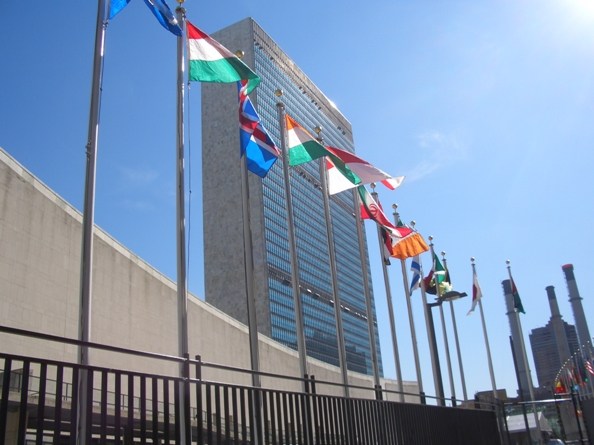
Nigeria describes UN report on violence, insecurity as ‘disappointing’
The Federal Government of Nigeria is disappointed with the UN report of “violence in Nigeria”, a statement from the presidency said.
According to the statement that was issued by the presidential spokesman, Garba Shehu, the preliminary report on violence in Nigeria as released by UN Rapporteur, Agness Callarmad, did not reflect the general state of security in all its ramifications.
Therefore, Mr Shehu said, the presidency “is disappointed.”
The presidency’s reaction to the UN Rapporteur’s report came nearly three weeks after Ms Callamard made public her report of violence in Nigeria.
In her report, which partly acknowledged efforts being made to douse the fight against Boko Haram insurgency in the northeast, the UN envoy said: “Nigeria is a pressure cooker of internal conflict.”
And that “the absence of accountability is on such a scale that pretending this is not a crisis will be a major mistake.”
Ms Callarmad mentioned lack of accountability, poverty, climate change, the proliferation of arms, government repression on groups like Shia Muslims, Indigenous People of Biafra and the Ogonis as factors fueling localised system of violence.
Read Also – Kamala Harris supports a mandatory buyback on ‘assault weapons’
In its reaction, the presidency said while it agrees with the UN Rapporteur on the rippling effects of violence, it is totally disappointing that the report ignored some other aspects of violence which the Nigerian government is battling to tackle.
“We have read press reports of the UN rapporteur on violence in Nigeria,” Mr Shehu said.
“While we agree that the violence in Nigeria, or in any country, is a major concern and that there is a rippling effect, we are disappointed that the rapporteur was silent on intra-group violence.
The presidency pointed out that “In Benue, Taraba, the Cross River States and many parts of the country, most of the casualties result from intra-group, inter-group and community violence. Many of the displaced persons across the nation are also victims of these conflicts.”
Mr Shehu said the UN Rapporteur Report did not appreciate the efforts and positive inroads that the Federal Government of Nigeria has made in managing conflicts like the farmers/ herder clash, which he said has now abated.
“There is absolutely no doubt that violence between farmers and herders, which has a long history in our country spiked in recent years but the effectiveness with which the federal and state authorities responded made a big difference,” Mr Shehu noted.
“Calm has virtually returned to all parts affected by the peculiar violence.
“Therefore, we are saddened that the rapporteur did not address intra-ethnic conflicts and cattle rustling as key elements in herder/farmer conflicts.
“In Benue State, for instance, the Tiv/Jukun conflict and kidnapping is a major problem. We are glad that local communities have fully realized this, and scholars with a strong motivation for peace and stability in their communities and the nation are trying to address the problem.”
The presidential spokesman said the UN Rapporteur’s report ignored salient local efforts being deployed by top scholars working with the federal government to address local issues that lead to conflict in parts of the country.
“Ignoring the salient issues will not help to solve the problem,” said Mr Shehu.
“If you are going to address violence and the general insecurity in Nigeria, incidents everywhere should be part of the narrative. Not addressing this might make it easier to blame the federal government, but national peace and security is a community-based and collective responsibility.
“Arrests, prosecution and locking people up are only small parts of National Security and Safety strategy.
“In Benue State, as cited earlier, the work of a US scholar of Tiv extraction, Professor Dick Adzenge, deserves special mention for attempting to get aspects of violence addressed. The expectation that arresting and putting people in prison is the only credible response to violence is a mistake.
Source – https://www.premiumtimesng.com/